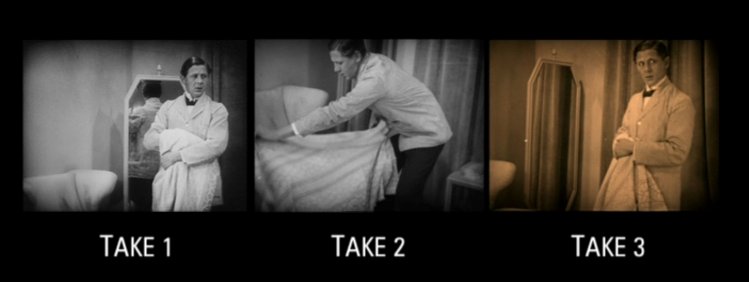Difference between revisions of "Making sense of the Variant"
From filmstandards.org
(Created page with "En 15907 provides a very general definition for the optional ''Variant'' entity. While the decision about when and how to use this decription level falls into the domain of catal...") |
|||
| Line 3: | Line 3: | ||
Here are some cases that may require more guidance than what is given by the current definition of ''Variant'': | Here are some cases that may require more guidance than what is given by the current definition of ''Variant'': | ||
| − | Case 1: A ''Manifestation'' not belonging to a known ''Variant'' | + | === Case 1: A ''Manifestation'' not belonging to a known ''Variant'' === |
| − | Case 2: Several ''Variants'' from a single production event | + | |
| + | |||
| + | === Case 2: Several ''Variants'' from a single production event === | ||
| + | |||
| + | Several film works are known where takes were repeated in order to produce more than one master negative without intermediate duplication. One such example is ''Spione'' by Fritz Lang (1928). | ||
| + | |||
| + | [[File:Spione-bm-m17s200.jpg]] | ||
| + | |||
| + | Shortly after the introduction of sound film, it was not uncommon to produce multilingual versions where shots were repeated with different sets of main actors. An example of such a multilingual version is ''Cape Forlorn / Menschen im Käfig / Le cap perdue'' by E.A. Dupont (1930). | ||
Revision as of 12:26, 21 May 2011
En 15907 provides a very general definition for the optional Variant entity. While the decision about when and how to use this decription level falls into the domain of cataloguing, some semantic clarification will also be needed at the level of metadata modelling.
Here are some cases that may require more guidance than what is given by the current definition of Variant:
Case 1: A Manifestation not belonging to a known Variant
Case 2: Several Variants from a single production event
Several film works are known where takes were repeated in order to produce more than one master negative without intermediate duplication. One such example is Spione by Fritz Lang (1928).
Shortly after the introduction of sound film, it was not uncommon to produce multilingual versions where shots were repeated with different sets of main actors. An example of such a multilingual version is Cape Forlorn / Menschen im Käfig / Le cap perdue by E.A. Dupont (1930).
